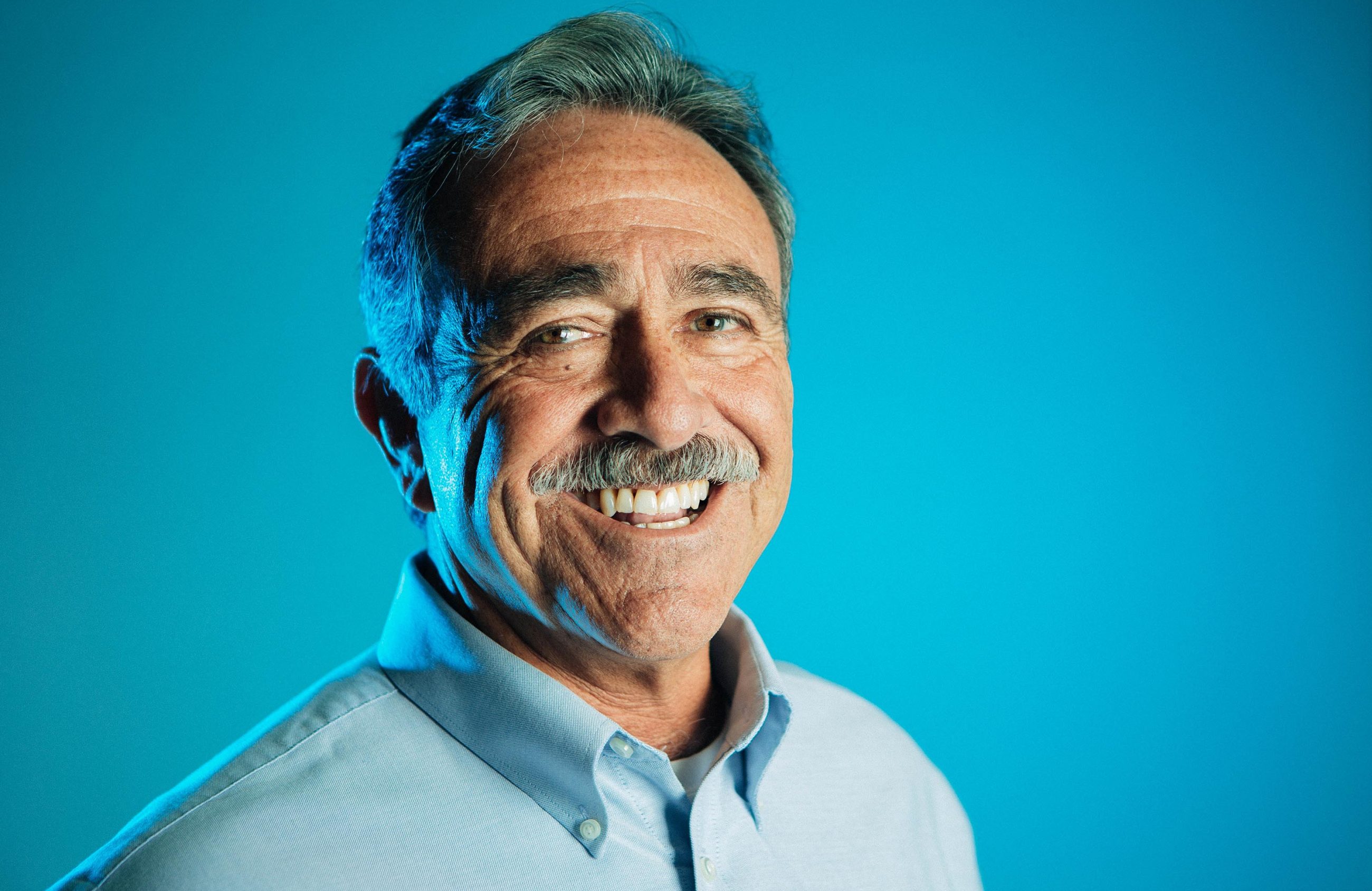Who knew there would be so much excitement in a county commissioner campaign? But somehow Joe Berney drums up support like another politician whose name sounds a lot like his.
Berney and his campaign volunteers have knocked on more than 7,000 doors and set up 300 yard signs all throughout the city. The enthusiasm continues when he meets voters, who he says are excited for someone to finally take Sid Leiken off the District 2 County Commissioner seat, representing Springfield.
“On the basis of knocking on the doors, we’re hearing ‘We’ll vote for anyone but Sid,’” he says. “We’ve met people that go to church with him who strongly don’t like him.”
Berney retired about 13 months ago after running his business, ReNewAll, which worked toward securing financing for more than $120 million in clean energy construction projects. But rather than just settling into retirement, he knew that there were many reasons to run for commissioner.
One thing in particular stuck with him. He saw Leiken as a representative of things that are going wrong locally and nationally.
Berney will face off against the longtime Springfield-based politician in the May 15 primary election.
Leiken, who’s served 20 years in local politics, started his political career as a city councilor, then served as mayor of Springfield and is now commissioner. He’s previously sought higher positions and failed. This includes running for secretary of state in 2016 and challenging Rep. Peter DeFazio in 2010.
Leiken dropped out of the congressional race after getting in trouble for paying campaign funds to his mother to conduct a poll that never happened.
Berney says these attempts to climb the political ladder show that Leiken prefers political office to public service.
“He’s using the county commissioner as leverage for higher office,” Berney says. “I’m looking at it as, ‘That’s it.’”
What drives Berney is thinking of what could happen if he were elected. He says the county misuses its tools, which include deferred tax payments, low-interest loans and grants. The result is the county wastes time investing in large corporations that abuse these tools. He instead wants to use them to influence development from local talent.
“I have a much longer background in economic development that’s more real than Mr. Leiken’s, so I’m going to suggest the majority of those tools to help local entrepreneurs expand local businesses that are committed to the community,” he says. “We’re going to have brain drain if we don’t have that approach, and we’ll get far more of a multiplier of dollars moving through the economy.”
Berney has received high praise for his dedication to serving the community. In 2008, Berney, a graduate of the University of California, Santa Cruz — making him one of three UCSC Banana Slugs in the county race this year — received the Distinguished Social Sciences Alumni Award from his alma mater’s Division of Social Sciences for making major impacts in education, labor and social justice.
Berney is humble about the award, saying he only brings it up because he’s running for office. A brief snapshot of his background, though, shows that it’s no surprise he received the award.
He’s served in the Carter administration as assistant director of Community Services Administration, launched an agricultural training program in Watsonville, California, and founded Networking for Youth, a Lane County-based program that directed the area’s youth to local services — just to name a few.
Leiken’s campaign website says he was born to a family who owned timber and development companies. That makes sense when looking at his contribution list, which is a stark contrast to Berney’s.
Just in 2018, Leiken received support from the timber and development industries. This includes $2,000 from Vernon Egge of Coburg Rock Quarry, $2,500 from Seneca Jones Timber Company, $5,000 from Edward King of King Estate and $2,500 from John Murphy and $2,500 from Chrissy Murphy of Murphy Plywood.
In November 2017, Leiken also received $10,000 from McDougal Bros Investments.
On the other hand, Berney has received sizeable contributions from unions — including Lane County Public Works Association 626, AFSCME Local 1724 and Iron Workers District Council of the Pacific Northwest.
Berney has received more than $60,000 from statewide unions, according to the Oregon Secretary of State campaign activity website.
The support he’s received from labor unions can’t dictate his values because they share values, Berney says, whereas Leiken looks the other way when “buttes are being blown up for gravel,” a reference to Ed King’s Old Hazeldell Quarry project.
“A lot of [unions] are 100 percent into what I’m into: moving into a renewable energy infrastructure,” he says. “Organized labor is all about living wages, fair and flexible schedules, hiring locally and benefits. How are they going to affect me since that’s what I’m all about, too?”
His endorsements and contributions also represent his ability to act as a bridge and form a coalition of community members with diverse agendas who have not been on the same side of history, he adds. But he’s had a history of doing that.
“When I developed the first migrant training center in California, I was working with conservative farm workers. I was working with Teamsters, who were at that time terrible to farmworkers,” Berney says. “I don’t agree with the traditional idea that there is liberal and conservative. I think there are people who don’t know what to do and get ideological and get stuck in the past like Mr. Leiken.”
Sure, Leiken has name recognition in Springfield — although Berney says it’s getting sour.
But Berney does like that his last name is a homonym with Bernie Sanders. He says that, for the first time in his life, the name Berney has some sort of name recognition. This isn’t the first time, however, that Springfield has felt the “Bern.” This time, though, it’s Joe Berney’s campaign.
